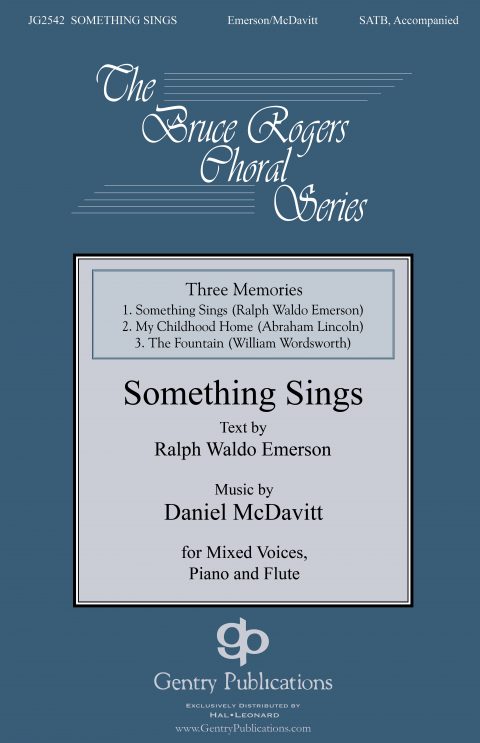Three Memories was commissioned by the Deer Creek Chorale (Martha Banghart, director) to be premiered in April 2017 for a concert on the theme of music and memory, specifically drawing attention to Alzheimer’s Disease and dementia.
This piece was very personal for me. Much of the inspiration for the music in Three Memories comes from observations of my grandmother as she was in the later stages of dementia. She was forgetting all of the small details, like the day of the week, the time of day, the month or season of the year. She often forgot who I was, or others in the family. She’d reach for a butter knife and hold it for a few minutes trying to figure out what it was she was supposed to do with it.
But I also noticed how sounds triggered her memory. The sound of a dog barking next door reminded her of something I did when I was a toddler. The sound of a bird reminded her of a clock they used to hang in their old house. The sound of music reminded her of my piano recitals, and she could remember the words of old hymns. Yet she didn’t know what to do with a butter knife.
Thus, when I was invited to consider texts for this commission, I sought texts that highlighted things that can bring memories back, and that bring with them hope, comfort, and joy. As I reflect on the experiences I had with my grandmother – and the tender mercy it was to hear her tell me stories of my childhood, when all the while she couldn’t remember what to do with her butter knife – I see the powerful meaning in the final statement in the third movement, “And yet a wiser mind mourns less for what age takes away, than what it leaves behind.”
The flute is a representation of memory, and takes inspiration from my grandmother’s responses to the sound of birds. In the first movement it is upbeat, even jocular, as the text speaks of finding music in all of the world, from the bird in the sky to the mud on the ground. The second movement is more of an atmospheric piece, as though standing at the bottom of a tall waterfall, with the flute soaring very high above. In the final movement, the flute introduces a simple three- note theme (mi-do-sol) when it first enters. From there it is woven into the piece rather subtly, though by the end, all of the parts have a chance to sing it. The whole piece ends with this simple three-note theme presented a little broken up, as if the memory is there but it takes a moment to bring it all together.
Three Memories is dedicated to the memory of my paternal grandmother, Virginia Zupka McDavitt.
